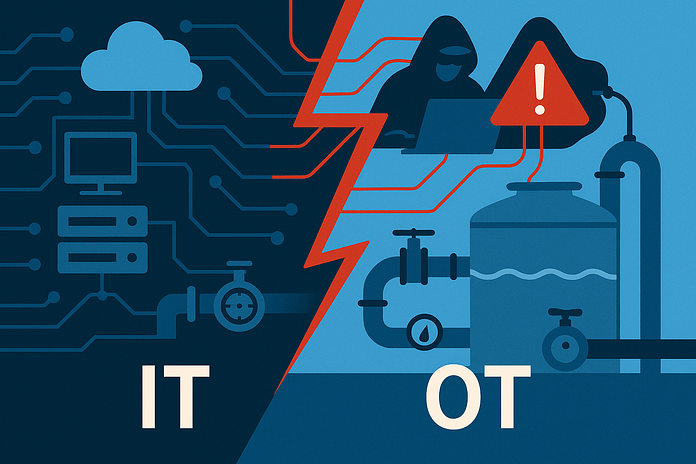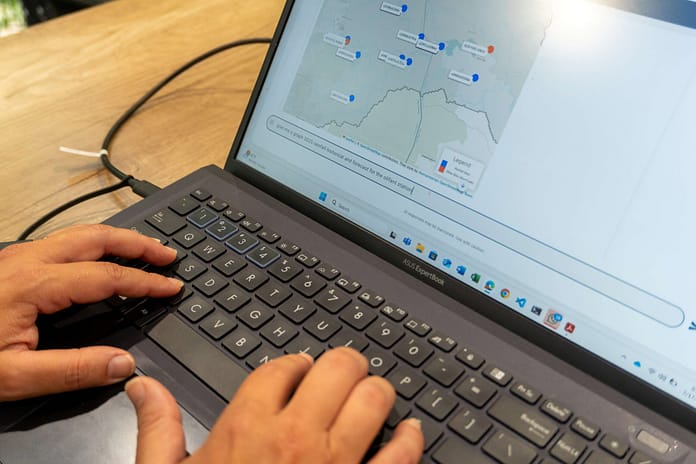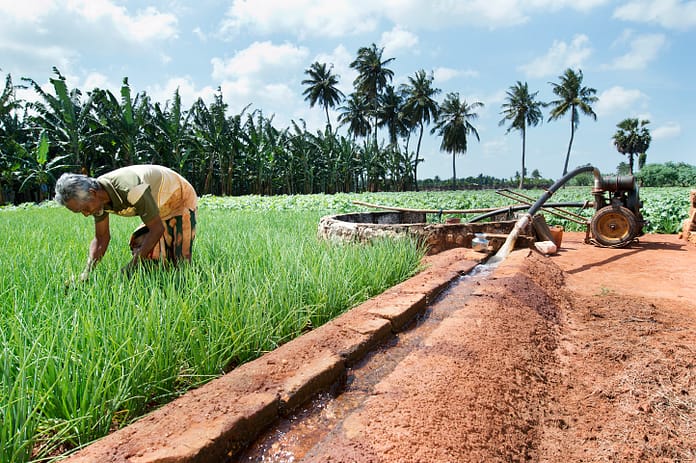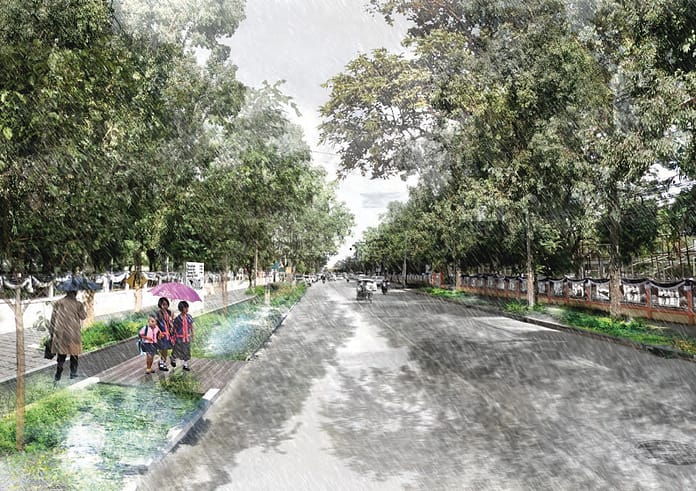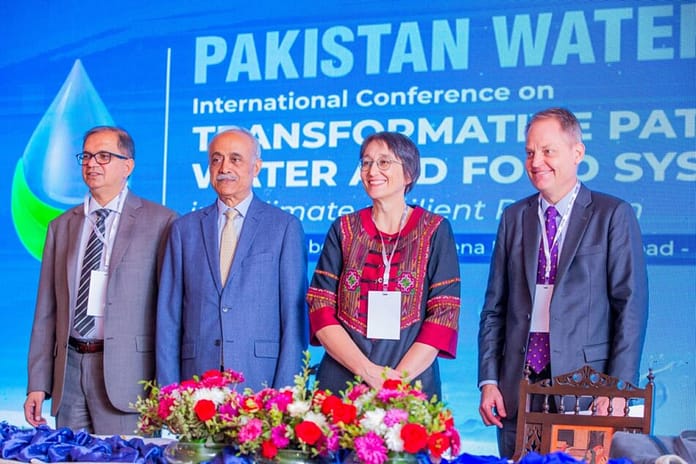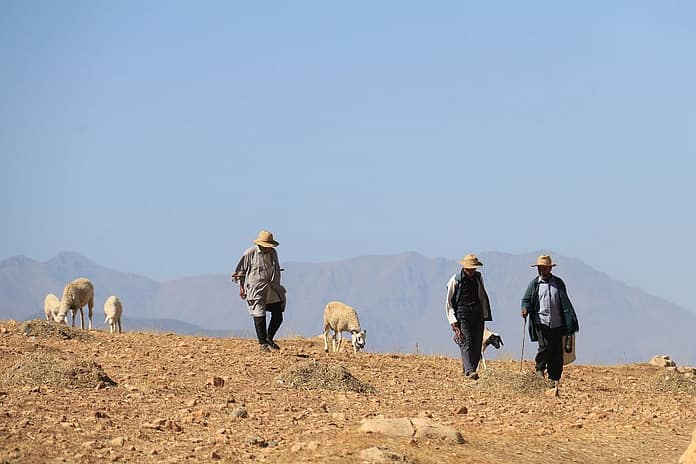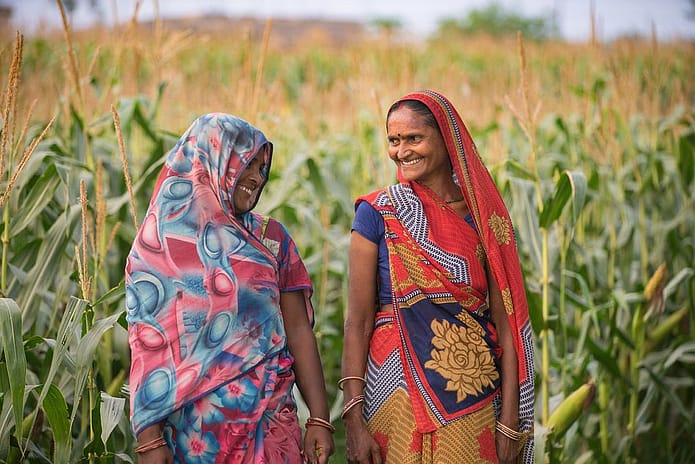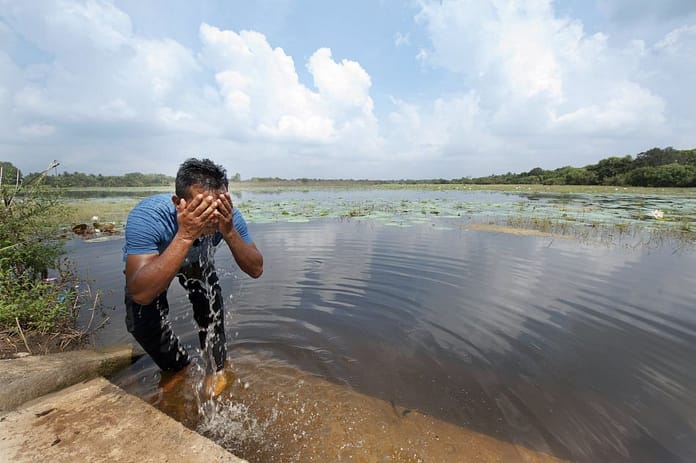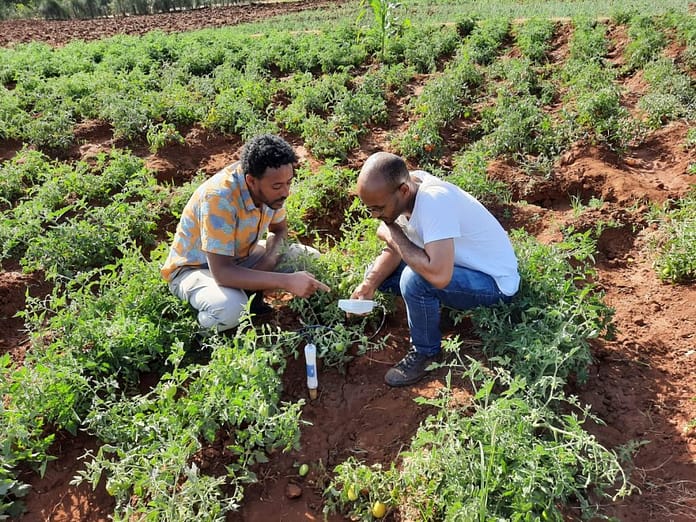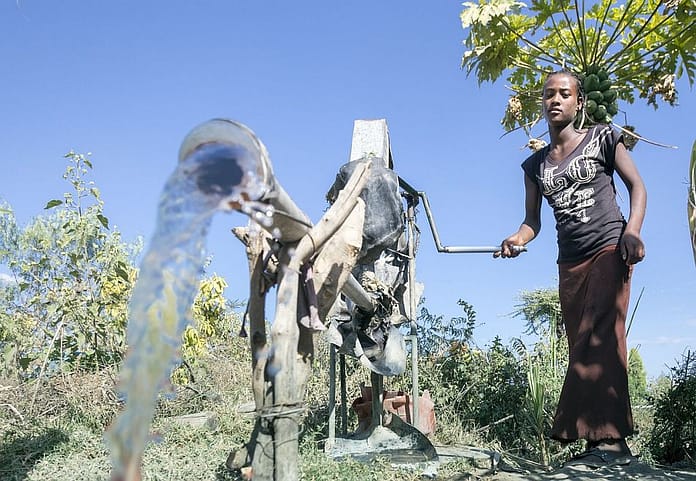
At Cairo Water Week (CWW) 2025, held from October 12-16, science, policy and innovation came together to confront one of the Middle East and North Africa’s (MENA) most pressing challenges: water scarcity.
This year’s theme — Innovative Solutions for Climate Resilience and Water Sustainability — carried particular weight in the world’s most water-scarce region. Leading ten sessions at CWW, the International Water Management Institute (IWMI) demonstrated how data, ecosystems and communities must be connected to build lasting resilience. “Resilience begins where knowledge and cooperation meet,” said IWMI Regional Representative for MENA, Youssef Brouziyne. “At Cairo Water Week, we’re aligning research with the people, institutions and ecosystems that can turn it into impact.”
Inclusive and nature-based solutions at scale
Ecosystem restoration and gender equity must advance together if adaptation is to last. That principle anchors Al Murunah+, a regional initiative led by IWMI in partnership with IUCN, Social Development Direct and national implementing partners, linking social inclusion with nature-based solutions (NbS) to make them more equitable and sustainable across the MENA region.
In the village of Izbat Al-Hamra, in Egypt’s northwestern Delta, Al Murunah is launching a new phase that offers guided mentoring for couples to make household financial decisions. Thereby, ensuring financial planning is made more equitable and the work done by women is recognized and valued.
“It is vital to bridge the gap between women’s real contributions and the recognition they receive,” said Sawsan Gharaibeh, IWMI regional researcher on gender and social inclusion and Al Murunah+ project lead. “Recognizing, reducing and redistributing women’s unpaid care work is fundamental to achieving both gender equality and more resilient livelihoods.”
Galal Moawad, regional participatory development expert at the Center for Environment and Development for the Arab Region and Europe (CEDARE) — the project’s implementing partner in Egypt — explained that the original artichoke-processing facility posed challenges in the conservative Bedouin farming community. “The issue wasn’t women’s willingness to work – it was access and time poverty. The large processing facility, far from their homes, didn’t fit their needs or the community’s norms,” explained Moawad.
To overcome these barriers, the project set up three small artichoke-processing units within the neighborhoods of Izbat Al-Hamra, enabling women to work near their homes and their children, while having access to washing facilities. Each unit, equipped for safe food handling and connected to local markets, is fully managed by women who source, clean and process artichokes – quadrupling their income while reducing time poverty and moving up the value chain.
Discussing the importance of scaling pilots like the one in Izbat Al-Hamra, Al Murunah’s project lead, Stephen Fragaszy, led a session on scaling NbS across MENA. The session, brought together researchers, practitioners and financiers on the business case for NbS even when returns take time. “Scaling resilient, nature-based water solutions is about shifting attitudes, policies, institutions and then practices. The key is building strong, collaborative partnerships,” explained Fragaszy.
Data that informs real world water management
Water Accounting Plus (WA+), developed by IWMI and IHE-Delft Institute for Water Education, combines hydrological models and open-source satellite data to track water use — even where monitoring is limited, like in much of the Middle East and North Africa.
In his keynote address, Hussein El-Atfy, Secretary-General of the Arab Water Council, explained that “WA+ gives us a common and verifiable language to answer key questions — how much water is there, where does it go, how much do we use and what value does it create?”
In Morocco’s Souss-Massa basin, IWMI’s water accounting dashboard has become a key tool for transparent management. The Food and Agriculture Organization (FAO) applied it in the Berrechid plains, 40 km from Casablanca, to investigate why the local aquifer was rapidly depleting. The analysis revealed that carrot farmers, lacking a cold-storage unit, kept part of their harvest in the soil after maturity – irrigating with groundwater for months for preservation.
This practice accounted for roughly one-quarter of the aquifer’s 32 million cubic meter deficit — a calculation led by Ehssan El Meknassi, coordination and implementation support specialist at FAO Morocco. “Once farmers saw the data visualized on the dashboard, it clicked,” she said – prompting authorities to build a cold storage unit, a direct policy response informed by the dashboard.

“Since CGIAR has recognized IWMI’s water accounting dashboards’ high scalability potential,” explained Muhammad Khalifa, integrated modeling and assessment researcher at IWMI, “we are scaling to Morocco’s Tensift basin, Egypt and Uzbekistan to bridge the gap between research and real-world water management.”
For Fayrouz Eldabbagh, political science researcher at IWMI, the value of water accounting data lies in what it enables: transparency, trust and negotiation among sectors competing for the same scarce resource. “Water accounting isn’t only about numbers,” she said. “It’s about using shared evidence to balance competing demands for food, growth and equity.”
IWMI’s ReWater+ project brings this philosophy into wastewater reuse. Led by Javier Mateo-Sagasta, it spans all 22 League of Arab States nations, with research underway in Egypt, Jordan and Morocco. Using artificial intelligence and remote sensing, the team is identifying wastewater treatment plants (WWTPs) to help governments assess the amount of treated water that can be safely reused.
“Not all treatment plants appear in government inventories,” said Mateo-Sagasta. “Many are privately managed by industries, residential compounds, or the tourism sector. To unlock the region’s reuse potential, we need a complete picture.” The AI model — trained to distinguish WWTPs from other similar-looking industrial facilities — helps quantify treatment capacity and pinpoint where investment is most needed. The project also examines irrigation water quality from aquifers, rivers and treatment plants to challenge the idea that treated wastewater is unsafe. “In many cases, treated water meets irrigation standards while fresh sources do not,” Mateo-Sagasta added.
Investing in the human side of resilience

Across MENA, people remain central to IWMI’s mission — sustaining resilience from the ground up. A national study by the Arab Organization for Agricultural Development (AOAD) in collaboration with IWMI mapped soil salinity across Egypt and found that 30-40% of the Delta’s soil is affected. Yet productivity has continued to rise — thanks to farmers’ ingenuity. They have flushed fields, applied gypsum, cleaned canals and cultivated rice, leaching salt from the soil.
Still, as agri-food systems transformation expert Nisreen Al-Lahham of Arab Organization for Agricultural Development (AOAD) explained, “Farmers bear the cost. Yields are lower in salt-affected lands, and there are no incentives to grow salt-tolerant crops.” Sustained support must come through coherent public policies — combining affordable credit, fair market access and the rehabilitation of old drainage systems.
“IWMI’s strength lies in linking evidence with ecosystems and equity,” said Brouziyne, IWMI’s regional representative for MENA as the conference wrapped up. “That’s how we chart a path toward a more resilient, water-secure MENA.”



